#Best School Near Bangalore
Text
Best CBSE and ICSE School in Bangalore - EuroSchool India
Welcome to the official website of EuroSchool Bangalore. We are honoured to be ranked among the best CBSE and ICSE schools in Bangalore. To learn more about the curriculum for schools, visit the page.

#Best School in Bangalore#Top School in Bangalore#Top 10 school in Bangalore#CBSE School in Bangalore#ICSE School in Bangalore#Best School Near Bangalore#School Curriculum
1 note
·
View note
Text
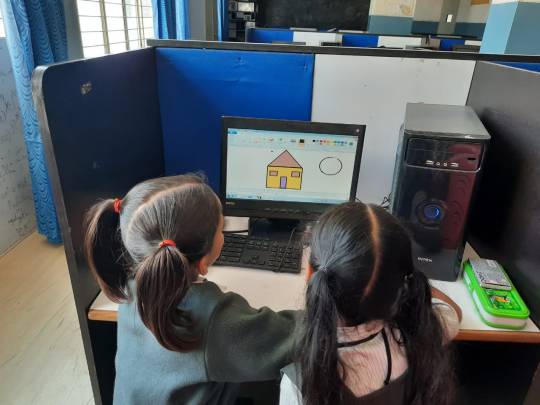
Top-Ranked ICSE Schools in Bangalore Offering Dedicated Computer Science Labs
Situated in Bangalore’s bustling heart, Green Valley School isn’t merely an educational institution; it’s a nurturing environment fostering comprehensive development and intellectual advancement. Regarded as one of the top ICSE schools in JPNagar South Bangalore, our institution prides itself on its modern infrastructure and steadfast commitment to furnishing students with advanced amenities, especially in the field of computer science.
#best icse school in bangalore#best icse school in jp nagar bangalore#best icse school in konanakunte bangalore#best icse school near me#best icse school in south bangalore#best icse syllabus school in bangalore#icse syllabus school in bangalore#icse board school in bangalore
0 notes
Text
School admission Bangalore 2024-2025
Samved School’s journey began in 1967 as A.V. Education Society with 50 children in a rented building in Jayanagar, Bangalore.
We have over 1000 happy children enrolled currently. It has been accredited by the Department of Education in Karnataka to follow the State’s S.S.L.C. Syllabus from Standards I to X.
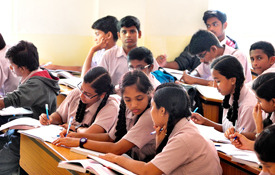
Visit the following site to learn about the admissions process: school admission Bangalore.
To register click the following link: Samved School
Contact
No.13, 17th Cross,
20th Main, J.P. Nagar 5th Phase
Bangalore, Karnataka 560078
080 2659 0952
080 2659 0017
080 2649 1248
#best schools in bangalore near me#schools in JP Nagar#Used URL#https://samvedschool.com/contact/#https://samvedschool.com/partners/#https://samvedschool.com/people-behind-the-school/#https://samvedschool.com/testimonial/#https://samvedschool.com/about-samved-school/#https://samvedschool.com/xseed-curriculum/#https://samvedschool.com/the-benefits-of-technology-driven-education/#https://samvedschool.com/achievements/#https://samvedschool.com/admission-procedures/#https://samvedschool.com/annual-report-2020-2021/#https://samvedschool.com/co-curricular-activities/#https://samvedschool.com/academic/#https://samvedschool.com/sports-games/#https://samvedschool.com/uniforms/#https://samvedschool.com/annual-report-2018-2019/#https://samvedschool.com/annual-report-2017-2018/#https://samvedschool.com/our-philosophy/#https://samvedschool.com/faculty/#https://samvedschool.com/facilities/#https://samvedschool.com/#https://samvedschool.com/admission/#https://samvedschool.com/2022-2023/#https://samvedschool.com/admission-rules/#https://samvedschool.edchemy.com/register2.0.html#https://samvedschool.com/blogs/#https://samvedschool.com/how-does-education-support-active-learning/#https://samvedschool.com/the-admission-process-for-top-schools-in-jp-nagar-tips-and-advice/
0 notes
Text
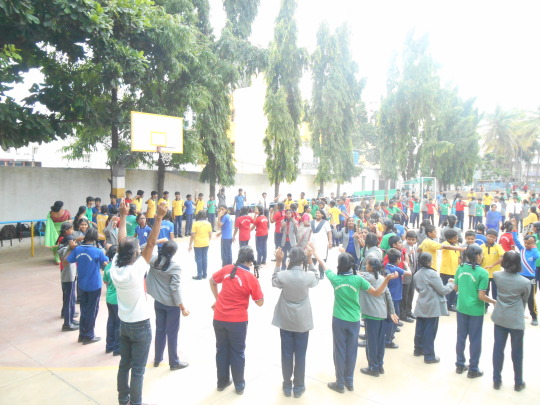
In the bustling locality of JP Nagar, Bangalore, where educational institutions thrive, GreenValley CBSE School stands out as a beacon of excellence. With a commitment to nurturing young minds and providing top-notch education, GreenValley is among the best CBSE schools in JP Nagar, boasting a faculty renowned for its experience and dedication.
#best cbse school in south bangalore#best cbse school in bangalore#best cbse school in jpnagara bangalore#cbse school bangalore#best cbse school in konanakunte bangalore#schools in bangalore#cbse school near me#top cbse schools#cbse schools in banashakari bangalore#cbse schools in bannerghatta road#best cbse school in kanakapura
0 notes
Text

ABBS offers a bouquet of courses across management, commerce, life sciences, IT and Liberal Arts, each a careful blend of classroom learning and practical experience. Top Business School in Bangalore.
Address: Acharya Bangalore B-SchoolAndrahalli Main Road, Off Magadi Road,Bengaluru – 560 091, Karnataka, India
Number: 91-9141707070
0 notes
Text
NGO for the mentally challenged in Bangalore
Tamahar, a non-profit organization founded in 2009 by Ms. Vaishali Pai, is dedicated to supporting children facing developmental delays due to brain damage, including conditions like Autism, Cerebral Palsy, Down’s Syndrome, Rare diseases, and Genetic disorders. As one of the best NGOs working for childhood disability in India, our holistic developmental intervention approach encompasses Core intervention, Functional Education, Pre-vocational training, Occupational Therapy, Speech Therapy, Physiotherapy, Music Therapy, Yoga, Arts, Dance, and Sports.
As a top developmental disabilities organization offering a comprehensive range of services tailored to the unique needs of each child from birth onwards, we are recognized as an NGO for the mentally challenged in Bangalore, specializing in providing transformative interventions to enhance the lives of children facing developmental challenges.
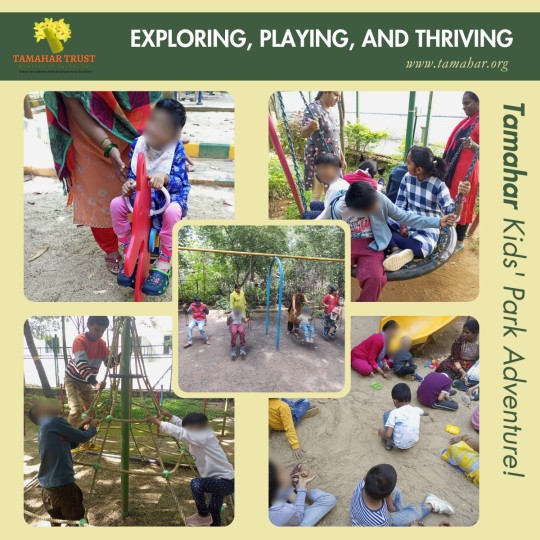
In addition to our core services, we extend support to families through mental health services designed to help them cope with stress. We also offer skill development programs for mothers, empowering them with profitable skills. Tamahar is proud to be among the distinguished organizations for developmentally disabled individuals, and we stand out as a trusted autism school in Bangalore near you. We ensure that families get the necessary support to get a proper diagnosis for their children, and to enroll them in Government supported schemes like the Niramaya, Pension, UDID, etc
Discover the transformative impact of our holistic interventions at Tamahar, where we are committed to fostering the growth and development of children with special needs and providing invaluable support to their families.
#Target Keywords#autism schools in bangalore#schools for autism in bangalore#ngo working for disabled in india#association for mentally challenged bangalore#teaching kids with learning disabilities#vocational training for special child#Mental Health services#donate to disabled#volunteer for disabled child care#special schools in bangalore for autism#school for mentally challenged in bangalore#donation for children's education#autism centres in bangalore#partner with ngo#best autism school in bangalore#donate for disabled child#autistic school in bangalore#children ngo in bangalore#school for hyperactive child in bangalore#ngo for physically handicapped in bangalore#ngo for mentally challenged in bangalore#mentally disabled charity#child development organizations#mentally retarded children#special education schools#charitable trust in bangalore#sponsor a child education in india#ngo for mentally challenged near me#autism school in bangalore
0 notes
Text
Nurturing Young Leaders: Advice for Parents and Teachers
In today's ever-evolving landscape, fostering leadership skills in children is paramount. Parents and educators hold the key to shaping the future leaders of tomorrow. Below, discover actionable strategies to nurture leadership qualities in children, whether they attend an international school near Electronic City, an IB school in Electronic City, or any other prestigious educational institution in Bangalore.
1. Empower Early Decision-Making
From a young age, empower children to make decisions, no matter how minor. This cultivates a sense of responsibility and confidence—essential traits for effective leadership. Encourage choices in activities, attire, and daily tasks to bolster their decision-making skills.
2. Cultivate Effective Communication
Effective leadership hinges on clear communication. Encourage children to express themselves openly and actively listen to others. Model effective communication skills in both verbal and non-verbal interactions, highlighting its significance in leadership roles.
3. Foster Collaboration and Teamwork
Leadership extends beyond individual achievements to collaborative efforts. Encourage teamwork through group projects, sports, and community initiatives. Teach children the value of respecting diverse perspectives and working together towards common goals.
4. Nurture a Growth Mindset
Embrace the concept of growth mindset, emphasizing the belief that abilities can be developed through effort and perseverance. Encourage children to view challenges as opportunities for growth rather than setbacks. Acknowledge their efforts and celebrate their progress along the way.
5. Provide Leadership Opportunities
Offer children opportunities to take on leadership roles, both within the school environment and the wider community. Whether leading projects, organizing events, or volunteering, providing leadership responsibilities builds confidence and decision-making skills.
6. Foster Critical Thinking and Problem-Solving
Leadership demands critical thinking and the ability to solve complex problems. Encourage children to question assumptions, analyze information critically, and explore innovative solutions. Present real-world challenges to stimulate their creativity and problem-solving abilities.
7. Lead by Example
The most impactful way to instill leadership qualities is by leading through example. Demonstrate integrity, resilience, and empathy in your actions. Show children what it means to be compassionate and ethical leaders through your behavior and interactions.
Conclusion
In conclusion, nurturing leadership skills in children requires a collaborative effort from parents, educators, and the broader community. By implementing these strategies, regardless of whether your child attends an international school near Electronic City, an IB school in Electronic City, or any other esteemed institution in Bangalore, you contribute to the development of future leaders who will positively impact society.
#International school near Electronic City#IB School In Electronic City#IGCSE School In Electronic City#best school in bangalore
0 notes
Text
General Knowledge Questions for Class 1 | Broad Vision World School
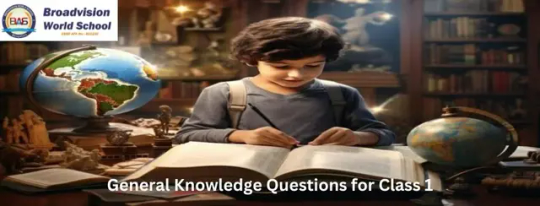
Introduction
GK stands for General Knowledge. It’s all the information and facts about the world around us, like countries, animals, history, and more. GK is important for students because it helps them understand the world better. When you know about different things, you can make better decisions, talk about interesting topics, and even do well in school. GK also helps students become curious and eager to learn more, which is really good for their brains and their future. So, learning GK is like having a treasure chest full of knowledge that can help you in many ways!
Why is GK Important for Class 1 Students?
General Knowledge (GK) is important for Class 1 students because it helps them learn about the world around them. When children know about different things like animals, plants, countries, and famous people, it makes them curious and helps them understand more about their surroundings. GK also helps children develop their thinking skills, memory, and understanding of different cultures and places. Plus, it can make learning more fun and interesting for them. So, even though they’re young, learning some basic GK can be really helpful for Class 1 students!

GK Questions for Class 1
Here are 100 simple General Knowledge questions with answers suitable for class 1 students in India:
1. What colour is the sky during the daytime?
– Answer: The colour of the sky during the daytime is Blue.
2. How many fingers are there on a single hand?
– Answer: We have Five fingers in one hand.
3. Which animal is called the “King of the Forest”?
– Answer: The lion is called the “King of the Jungle.”
4. Which is the tallest mountain in the world?
– Answer: Mount Everest holds the title of being the tallest in the world.
5. What shape is a circle?
– Answer: the Shape of a circle is Round
6. How many legs does a cat and dog have?
– Answer: A cat and dog have Four legs.
7. What is the opposite of hot?
– Answer: The opposite of hot is Cold.
8. What is the colour of a banana?
– Answer: The colour of banana is Yellow.
9. What is the biggest planet in our solar system?
– Answer: The largest planet in our solar system is Jupiter.
10. How many seasons are there in a year?
– Answer: There are Four seasons (Spring, Summer, Autumn, Winter) in a year.
11. What do we use to see things far away?
– Answer: We use Telescope or Binoculars to see things far away.
12. What are the vowels in the English alphabet?
– Answer: The vowels in the English alphabet are A, E, I, O, and U.
13. What is the colour of grass?
– Answer: The colour of grass is Green.
14. Name a bird that lays the largest eggs?
– Answer: Ostrich lays the largest eggs.
15. Who is Jawaharlal Nehru?
– Answer: Jawaharlal Nehru was India’s very first Prime Minister. We celebrate children’s day on 14th November to honour children on his birthday.
16. How many days are there in a week?
– Answer: There are Seven days in a week.
17. What do we call the place where birds live?
– Answer: The place where birds live is called Nest.
18. Which bird can’t fly but can swim?
– Answer: Penguin can’t fly but it’s an excellent swimmer.
19. What do we use to see time?
– Answer: We use Clock or Watch to see time.
20. Which is the smallest bird in the world?
– Answer: Hummingbird is the smallest bird in the world.
21. What is the capital of Karnataka?
– Answer: Bangalore is the capital city of Karnataka.
22. What is the colour of a tomato?
– Answer: The colour of a tomato is Red.
23. Which animal says “moo”?
– Answer: Cow says “moo”.
24. What do we call the season after summer?
– Answer: Autumn or Fall
25. How many sides does a triangle have?
– Answer: A triangle have three sides.
26. Which animal says “Bow wow”?
– Answer: Dog says “Bow wow”.
27. Which animal is called the “Ship of the Desert”?
– Answer: Camel is called the “Ship of the Desert”.
28. What is the colour of the sun?
– Answer: The colour of the Sun is Yellow.
29. What do we use to cut paper?
– Answer: We use Scissors to cut paper.
30. Which planet is known as the “Red Planet”?
– Answer: The “Red Planet” is Mars because its surface is covered with reddish iron oxide, also known as rust.
31. What is the opposite of big?
– Answer: Small is the opposite of big.
32. How many eyes does a human have?
– Answer: A human have Two eyes.
33. Which is the tallest animal on Earth?
– Answer: The giraffe is the tallest animal on Earth, with a height reaching up to 18 feet (5.5 meters) or more.
34. What do we call the baby of a Dog?
– Answer: The baby of a Dog called puppy.
35. Which fruit is known as the “King of Fruits”?
– Answer: Mango holds the title of being called the “King of Fruits.”.
36. What do we use to clean our teeth?
– Answer: We use Toothbrush to clean our Teeth. We clean our teeth to keep them healthy and strong, remove food bits and germs, and prevent bad breath.
37. Which animal lives in water and has gills?
– Answer: Fish lives in water and has gills.
38. What is the colour of the ocean?
– Answer: The colour of the ocean is Blue.
42. Name the National animal of India?
– Answer: The National animal of India Tiger.
40. What is the opposite of day?
– Answer: Night is the opposite of day.
41. What is winter season?
– Answer: Winter is one of the four seasons of the year. It comes after autumn and before spring. In winter, the weather becomes colder. Sometimes it snows, and everything gets covered in snowflakes.
42. What do people wear in winter?
– Answer: People wear warm clothes like sweaters, jackets, gloves, and hats to keep themselves warm in winter.
43. What is the rainy season?
– Answer: The rainy season usually happens after the hot season or summer. During the rainy season, there is a lot of rain which helps plants grow and fills up rivers and lakes.
44. What do people do during the rainy season?
– Answer: People use umbrellas or raincoats to stay dry when they go outside during the rainy season. They also plant crops that need lots of water.
45. What is summer season?
– Answer: Summer is a season that comes after spring and before autumn. It is usually warm or hot, and the days are longer than nights. The sun shines brighter, and there is often less rain.
46. Why is it important to drink water in summer?
– Answer: It’s important to drink water in summer because we sweat more in the heat, and drinking water helps keep us hydrated and healthy.
47. What is it called when water changes into gas?
– Answer: The process of water turning into vapor is called evaporation. When the Sun heats up water, it causes the water to turn into vapor and disappear into the air.
48. What is the opposite of fast?
– Answer: Slow is the opposite of fast.
49. Rainbow consist of how many colours?
– Answer: A rainbow is made up of seven beautiful colours. These colours are red, orange, yellow, green, blue, indigo, and violet. When sunlight passes through raindrops in the sky, it bends and splits into these different colours which we sometimes see after rain showers.
50. Which animal can change its colour to blend with its surroundings?
– Answer: A chameleon can change its colour to blend with its surroundings.
General Knowledge Questions for Class 1
51. Where do we get wood from?
– Answer: We get wood from trees.
52. What are some things we can make from wood?
– Answer: We can make furniture, buildings, papers, and other useful items from wood.
53. What are the three forms in which water can be found?
– Answer: Water can be found as solid (ice), liquid (water), and gas (water vapor).
54. What is the opposite of tall?
– Answer: The opposite of tall is Short
55. How many wheels does a bicycle have?
– Answer: A bicycle have Two wheels.
56. What do we use to light a room?
– Answer: We use Bulb or Lamp to light a room.
57. How many days are there in a year?
-Answer: There are 365 days in one year.
58. Why is water important for living things?
– Answer: Water is important for living things because we need it to drink, to grow plants, to clean ourselves, and for many other things. It also helps animals and plants to survive.
59. Where do we find water on Earth?
– Answer: We can find water in rivers, oceans, lakes, ponds, streams, and even underground in the form of groundwater.
60. How much of the Earth’s surface is covered by water?
– Answer: Water covers approximately 71% of the Earth’s surface.
61. How do plants make their food?
– Answer: Plants produce their own food using a process known as photosynthesis. They need sunlight, water, and carbon dioxide to make food.
62. Which animal is known for its black and white stripes?
– Answer: Zebra is known for its black and white stripes.
63. Why is it important to reduce waste?
– Answer: It is important to reduce waste because it helps protect the environment, keeps our surroundings clean, and conserves natural resources.
64. Why is it important to take care of plants and animals?
– Answer: It’s important to take care of plants and animals so they can live happily and our world stays beautiful.
65. What is the opposite of wet?
– Answer: Dry is the opposite of wet.
66. Why is it important to turn off the lights when we leave a room?
-Answer: Turning off the lights when we leave a room helps save electricity and keeps the Earth healthy.
67. What do we call the baby of a cat?
– Answer: the baby of a cat called Kitten.
68. What is it called when we use waste materials to make new things?
– Answer: This Process is called Recycling
69. Why do we compost?
-Answer: We compost to turn food scraps and plant waste into nutrient-rich soil that helps plants grow strong and healthy.
70. Which animal has a long trunk and tusks?
– Answer: Elephant has a long trunk and tusks.
71. What type of gas is absorbed by plants?
– Answer: Carbon Dioxide is absorbed by plants.
72. Name the planet nearest to the Earth?
– Answer: The planet nearest to Earth is Venus.
73. How many continents are there in the world?
– Answer: There are seven continents in the world: Africa, Antarctica, Asia, Europe, North America, Australia and South America.
74. Name the National bird of India?
– Answer: The National bird of India is Peacock.
75. Why is recycling important?
-Answer: Recycling is important because it helps to reduce pollution and saves our natural resources, like trees, water, and minerals.
76. What is the opposite of light?
– Answer: The opposite of light is Dark
77. Name the largest ocean in the World?
– Answer: The largest ocean in the World is Pacific Ocean.
78. How many letters does the English alphabet have?
– Answer: There are 26 letters in the English alphabet.
79. How many hours are there in a day?
– Answer: There are 24 hours in a day.
80. How many minutes are there in an hour?
– Answer: There are 60 minutes in an hour.
81. How many seconds are there in a minute?
– Answer: There are 60 seconds in a minute.
82. When do we celebrate Teachers’ Day?
– Answer: Teachers’ Day is celebrated on September 5th in India to honour Dr. Sarvepalli Radhakrishnan. We celebrate Teachers’ Day to show our appreciation and respect for our teachers and their hard work in helping us learn and grow.
83. Which is the smallest month of the year?
– Answer: The smallest month of a year is February.
84. Which animals give us milk?
-Answer: Milk is provided by cows and goats.
85. What do we call the baby of a cow?
– Answer: The baby of a cow called Calf
86. Which animal has a shell and lives in water?
– Answer: Turtle has a shell and lives in water.
87. Which festival is known as the festival of light?
– Answer: Diwali is known as the festival of light.
88. Which bird is known for its ability to fly high?
– Answer: Eagle is known for its ability to fly high.
89. How many states are there in India?
– Answer: India has 28 states.
90. What is the National song of India?
– Answer: Vande Mataram is the National song of India.
91. Name the National game of India?
– Answer: Hockey holds the status of being India’s national game.
92. Which festival is called the festival of colours?
– Answer: Holi is called the festival of colours.
93. What is the main cause of air pollution?
– Answer: The main cause of air pollution is the release of harmful substances into the air, such as smoke from factories and vehicles, dust, and chemicals.
94. What is the capital of India?
– Answer: New Delhi is the capital of India.
95. How many days are there in a week?
– Answer: A week consists of seven days.
96. What do we celebrate on August 15th every year?
– Answer: Every year on August 15th, we celebrate Independence Day to honour India’s freedom from British rule
97. Name the national flower of India?
– Answer: Lotus flower is the national flower of India.
98. Which animal is known for its ability to climb trees?
– Answer: Monkey is known for its ability to climb trees.
99. What is the National Anthem of India?
– Answer: Jana Gana Mana is recognized as the National Anthem of India.
100. Who is the Father of our Nation?
– Answer: Mahatma Gandhi is the Father of our Nation.
GK Questions for Class 1
10 Ways to Improve Your Child’s General Knowledge
1. Read together: Choose books with interesting facts about animals, nature, or the world around us. Reading together can be fun and informative.
2. Watch educational videos: Find age-appropriate videos or documentaries that teach new things about different subjects. You can watch these together and discuss what you learned.
3. Visit museums or zoos: Take trips to museums, zoos, or other educational places where children can learn about history, science, and nature firsthand.
4. Encourage curiosity: Answer your child’s questions and encourage them to ask more. Curiosity is the key to learning!
5. Play educational games: There are many fun games and puzzles available that can help children learn new facts and skills while having fun.
6. Talk about current events: Discussing current events or news stories with your child can help them stay informed about the world around them.
7. Use every day experiences: Use everyday activities like cooking, gardening, or going for a walk as opportunities to teach your child new things about science, math, or the environment.
8. Make learning fun: Try to make learning enjoyable by incorporating games, songs, or hands-on activities into your child’s routine.
9. Be patient and supportive: Every child learns at their own pace, so be patient and supportive as they explore new topics and ideas.
10. Lead by example: Show your child that learning is important by being curious yourself and showing interest in new things.
Conclusion
learning about different things helps Class 1 children understand the world better. It makes them curious and helps them think about things in new ways. It also helps them talk and share their ideas with others. So, having good General Knowledge at a young age can make learning easier and more fun for them
Faq
What is the GK for kids?
GK for kids means learning about lots of different things like animals, countries, important people, and how things work. It helps kids understand the world better.
How does BroadVision World School prepare Class 1 students’ general knowledge?
At BroadVision World School, we make learning fun for Class 1 students. We use stories, games, and activities to teach about many different things, like animals, countries, and more. This helps kids learn and remember better and also improve their GK.
#best school near me#best school in bangalore#Why is GK Important for Class 1 Students?#GK Questions for Class 1#General Knowledge Questions for Class 1#10 Ways to Improve Your Child’s General Knowledge
0 notes
Text
Elevating Academic Excellence: The Impact of IB Schools on Effective Study Methods and Time Management
Education stands as the bedrock of success, and selecting the right educational institution plays a pivotal role in preparing students for academic and personal triumphs. Within the sphere of education, achieving academic excellence is paramount, and the International Baccalaureate (IB) program stands as a beacon of this pursuit. Renowned for its comprehensive curriculum and holistic educational philosophy, IB schools place significant emphasis on nurturing effective study strategies and honing time management skills among their students. Many IB international schools in Bangalore offer a distinctive educational journey that fosters critical thinking, problem-solving, and other essential skills vital for academic and personal success. In this article, we delve into the strategies employed by IB schools to cultivate these crucial skills, empowering students to excel academically and beyond.
Understanding the Significance of Effective Study Techniques and Time Management:
Effective study techniques encompass a spectrum of methodologies aimed at optimizing learning, comprehension, and information retention. Concurrently, time management involves judiciously allocating and utilizing one's time to strike a balance between academic obligations, extracurricular pursuits, and personal endeavors. Both of these skills are foundational pillars for success within the IB program and in life beyond academia.
The IB Approach to Cultivating Effective Study Techniques:
Championing Inquiry-Based Learning: IB schools champion inquiry-based learning, urging students to ask questions, explore concepts independently, and engage in critical thinking. By nurturing curiosity and fostering self-directed inquiry, students deepen their understanding of subjects and enhance their problem-solving abilities.
Harnessing Active Learning Methods: IB schools leverage active learning methods such as group discussions, hands-on experiments, and collaborative projects to actively engage students in the learning process. These interactive experiences not only make learning enjoyable but also enhance comprehension and knowledge retention.
Implementing Tailored Instruction: Recognizing the diversity in learning styles and preferences, leading IB schools like Redbridge International Academy in Electronic City tailor their instruction to accommodate individual needs. Educators adapt teaching methods and materials to cater to various learning styles, ensuring inclusivity and maximizing student success.
Promoting Metacognitive Strategies: IB schools emphasize metacognitive strategies such as goal-setting, self-assessment, and reflection to help students develop awareness of their learning process. By setting clear objectives, monitoring progress, and reflecting on their learning experiences, students become more adept learners.
Fostering a Supportive Learning Environment: IB schools cultivate a supportive learning environment where students feel empowered to take risks, embrace failure as a learning opportunity, and receive constructive feedback from teachers. This supportive atmosphere encourages students to reach their full potential and fosters a growth mindset.
The IB Approach to Time Management:
Offering Time Management Workshops: IB schools provide time management workshops and seminars to equip students with essential skills and strategies for effective time management. These sessions cover topics such as prioritization, goal-setting, task organization, and efficient scheduling.
Providing Personalized Planning Tools: IB schools equip students with personalized planning tools such as digital calendars, planners, and task lists to help them organize their academic workload and extracurricular commitments. These tools empower students to manage their time effectively and stay organized.
Facilitating Structured Study Sessions: IB schools organize structured study sessions where students can focus on homework assignments, review course materials, and prepare for assessments in a conducive environment. These sessions provide dedicated time for academic work and help students develop disciplined study habits.
Offering Supportive Teacher Guidance: Teachers within IB schools play a pivotal role in supporting students' time management efforts by providing guidance, feedback, and assistance as needed. Educators help students prioritize tasks, set realistic goals, and develop effective study plans to maximize academic potential.
Promoting Balance and Well-being: IB schools emphasize the importance of maintaining a balance between academic pursuits and personal well-being. Schools encourage students to prioritize self-care activities such as physical exercise, relaxation, and socialization to prevent burnout and promote overall health and happiness.
In Conclusion:
IB schools are dedicated to fostering academic excellence by nurturing effective study techniques and instilling strong time management skills in their students. Through inquiry-based learning, active engagement, tailored instruction, metacognitive strategies, time management workshops, personalized planning tools, structured study sessions, and supportive teacher guidance, students develop the critical skills needed for success both academically and personally. If you're considering an International Baccalaureate (IB) education for your child, it's essential to understand the unique approaches employed by different schools. By choosing the right institution and fostering a commitment to learning, your child can cultivate the essential skills for a successful future.
#ib international School#International school near Electronic City#IB School In Electronic City#best international school in bangalore#IGCSE School In Electronic City
0 notes
Text
Empowering Future Generations: The Pivotal Role of Innovation in Bangalore's International Schools
In the bustling tech hub of Bangalore, international schools are revolutionizing the educational landscape, embedding innovation at the core of their ethos. These institutions are not merely places of learning; they are the nurseries of the next wave of global leaders, thinkers, and innovators. Through a unique blend of cutting-edge technology, forward-thinking curricula, and a global perspective, International Schools in Bangalore are setting new standards for academic excellence and holistic development.
Crafting Innovative Learning Spaces
The cornerstone of Bangalore's international schools is their unwavering commitment to fostering environments that stimulate curiosity, creativity, and critical thinking. Classrooms transcend traditional boundaries, integrating advanced technologies and interactive platforms to ensure students are fluent in the digital language of the future. These schools champion experiential learning, where theoretical knowledge is seamlessly interwoven with practical application, empowering students to tackle real-world challenges with inventive solutions.
Future-Ready Curriculum Design
Tailored to meet the demands of an ever-evolving world, the curriculum in these schools transcends conventional learning paradigms. It is richly infused with disciplines like artificial intelligence, sustainable development, and digital arts, ensuring a well-rounded and future-proof education. International Schools in Bangalore prioritize the cultivation of a broad skill set, nurturing not only intellectual growth but also emotional and social intelligence, critical for success in the global arena.
Fostering Global Connections
A defining characteristic of these schools is their global outlook. Through strategic partnerships with leading educational institutions worldwide, students gain unparalleled access to international exchange programs, competitions, and collaborative projects. These opportunities expand horizons, enhance cultural competencies, and instill a profound sense of global responsibility.
Beyond Academics: Extracurricular Excellence
Recognizing the integral role of holistic development, International Schools in Bangalore offer an extensive array of extracurricular activities. From competing on the international stage in sports to innovating in science fairs and shining in performing arts, students are encouraged to pursue their passions, leading to well-rounded personalities poised for success in any field.
Champions of Sustainability and Ethics
These schools stand out for their deep-rooted commitment to sustainability and ethical consciousness. Students engage in impactful projects focusing on environmental conservation, social entrepreneurship, and community service, fostering a generation that is not only academically proficient but also socially and environmentally conscious.
Innovative Educators: The Backbone of Success
The faculty in these schools are the catalysts for change, constantly evolving their pedagogical strategies to incorporate the latest in educational research and technology. They serve as mentors, guiding students through their educational journey with passion and dedication, and ensuring that each student realizes their full potential.
Equipping Students for a Boundless Future
The essence of an education at an International School in Bangalore is the comprehensive preparation it offers for life's challenges and opportunities. Graduates emerge as confident, compassionate, and capable young adults, ready to contribute meaningfully to society and thrive in a dynamic, interconnected world.
In essence, the role of innovation in shaping the educational experience in Bangalore's international schools is monumental. These institutions are not just preparing students for the future; they are actively shaping it, fostering a generation of leaders who will drive positive change globally.
#igcse schools in bangalore#International school near Electronic City#IB School In Electronic City#best international school in bangalore
0 notes
Text
Best Schools In Bangalore for 11th & 12th
Bangalore, often hailed as the “Silicon Valley of India,” is not only a hub for technology but also home to some of the International Schools in Bangalore offering education at the 11th and 12th-grade levels. The city’s educational landscape includes a diverse array of institutions, each distinguished by its commitment to academic excellence, comprehensive curriculum, and preparation for higher education.
One key feature of the Best Schools In Bangalore for 11th & 12th is their dedication to providing a well-rounded education. These institutions understand the critical juncture these grades represent, acting as a bridge between secondary education and the pursuit of higher studies. As such, they offer a comprehensive curriculum that not only focuses on academic subjects but also integrates a variety of co-curricular and extracurricular activities. This approach aims to nurture students into well-rounded individuals capable of critical thinking, creativity, and effective communication skills.
Academically, these schools often follow nationally recognized board curricula such as the Central Board of Secondary Education (CBSE), Indian Certificate of Secondary Education (ICSE), or the State Board syllabus. Some schools may also offer international curricula like the International Baccalaureate (IB) or the Cambridge International Curriculum. The choice of curriculum reflects the schools’ commitment to providing students with a diverse range of educational pathways, catering to different learning styles and aspirations.
The faculty in these schools is a critical component of their success. Teachers at the 11th and 12th-grade levels are not just subject matter experts; they also act as mentors, guiding students through the challenges of higher-level academics and preparing them for the competitive demands of college admissions. The best schools in Bangalore prioritize a skilled and dedicated teaching staff, often encouraging professional development to ensure educators are up-to-date with the latest teaching methodologies and academic trends.
Given the crucial role that these grades play in shaping a student’s academic future, extracurricular activities are integrated into the school curriculum. These activities include sports, arts, leadership programs, and community service initiatives. Participating in such activities not only provides students with a break from the academic rigors but also helps in fostering teamwork, leadership skills, and a sense of social responsibility.
The infrastructure in these schools is designed to support the holistic development of students. Modern classrooms, well-equipped laboratories, libraries, and sports facilities contribute to a conducive learning environment. The International Schools in Bangalore prioritize creating spaces that facilitate interactive learning, research, and physical well-being.
Preparing students for college and beyond is a primary focus in these institutions. They often have dedicated career counseling and guidance services to assist students in making informed decisions about their academic and professional futures. Mock exams, workshops, and seminars are organized to familiarize students with the college admission process, helping them navigate the complexities of university applications.
In conclusion, the Best Schools In Bangalore for 11th & 12th grades distinguish themselves through their commitment to providing a holistic and high-quality education. With a focus on a well-rounded curriculum, skilled faculty, diverse extracurricular opportunities, and robust infrastructure, these schools prepare students not only for academic success but also for the challenges and opportunities that lie ahead in higher education and the professional world. The educational landscape in Bangalore stands testament to the dedication of these institutions in nurturing the next generation of leaders and thinkers.
#igcse schools in bangalore#ib board schools in bangalore#montessori schools in hennur bangalore#best schools in bangalore for 11th and 12th#school near hennur#international schools in bangalore#top schools in bangalore
0 notes
Text
#best icse school in konanakunte bangalore#best ices school near konanakunte bangalore#best icse school in jpnagar bangalore#best icse school in south bangalore#best icse syllabus school in bangalore#best icse board school in bangalore#top icse school in bnagalore
0 notes
Text
Top Schools in Jp Nagar, Bangalore
Choosing a school for your child is a big decision and getting into a top school in JP Nagar can be competitive. With many schools to choose from and limited spaces available, the admission process can seem daunting. But with a little preparation, you can increase your child’s chances of being accepted into the top schools in JP Nagar.

Here are some tips and advice on the admission process for top schools in JP Nagar:
Research about the schools before applying. Learn about the schools in JP Nagar, their curriculum, extracurricular activities, and any other important details. Check their websites, read reviews, and talk to other parents whose children attend these schools. This will help you narrow down your choices and determine which schools are the best fit for your child.
Attend school’s Open Days and Events. Most schools in JP Nagar host open days, orientation days, and other events that give parents and students a chance to tour the campus, meet teachers and administrators, and learn more about the school. Attend these events to get a first-hand look at the school’s culture, curriculum, and facilities.
Understand the admission requirements. Every school has its own admission requirements, and it’s important to understand what the schools are looking for in prospective students. Some schools require entrance exams, interviews, essays, or portfolios. Make sure to read and understand the admission requirements for each school you’re interested in and prepare your child accordingly.
Start early. The admission process for top schools in JP Nagar can be competitive, so it’s important to start early. Many schools have limited spaces, so the earlier you start, the better your chances of getting in. Make sure to keep track of application deadlines and submit your child’s application as early as possible.
Highlight your child’s achievements and skills. In addition to meeting the admission requirements, it’s important to highlight your child’s achievements and skills. This can include academic performance, extracurricular activities, community service, and other accomplishments. Make sure to showcase your child’s strengths and achievements in their application.
Be prepared for the interview. If the school requires an interview, make sure to prepare your child for it. Practice common interview questions, and help your child develop their communication skills. Encourage them to be confident, polite, and enthusiastic.
Be patient. The admission process for top schools in JP Nagar can be time-consuming, and it’s important to be patient. Don’t be discouraged if your child doesn’t get accepted into their first-choice school. Keep exploring your options and be open to considering other schools.
In conclusion, getting into a top school in JP Nagar can be competitive, but with careful research and preparation, you can increase your child’s chances of being accepted. Keep in mind the admission requirements, highlight your child’s achievements, be prepared for the interview, and be patient. With the right attitude and approach, you can find the best school for your child.
#state board schools in bangalore south#best schools in jp nagar#School in jp nagar#Used URL#https://samvedschool.com/the-benefits-of-technology-driven-education/#https://samvedschool.com/co-curricular-activities/#https://samvedschool.com/sports-games/#https://samvedschool.com/people-behind-the-school/#https://samvedschool.com/faculty/#https://samvedschool.com/contact/#https://samvedschool.com/2022-2023/#https://samvedschool.com/xseed-curriculum/#https://samvedschool.edchemy.com/register2.0.html#https://samvedschool.com/our-philosophy/#https://samvedschool.com/#https://samvedschool.com/uniforms/#https://samvedschool.com/admission-rules/#https://samvedschool.com/achievements/#https://samvedschool.blogspot.com/2023/03/how-does-education-support-active.html#https://samvedschool.com/blogs/#https://samvedschool.com/partners/#https://samvedschool.com/our-video/#https://samvedschool.com/admission/#https://samvedschool.com/admission-procedures/#best schools in bangalore near me#State Board schools near South Bangalore#State board schools in JP Nagar#https://samvedschool.blogspot.com/2023/04/state-board-schools-are-important-part.html#https://dribbble.com/shots/21306302-best-schools-in-bangalore-near-me-Samved-School-JP-Nagar#https://medium.com/@samvedmedia/curriculum-and-syllabus-state-board-schools-near-south-bangalore-7798c32e0b27
0 notes
Text
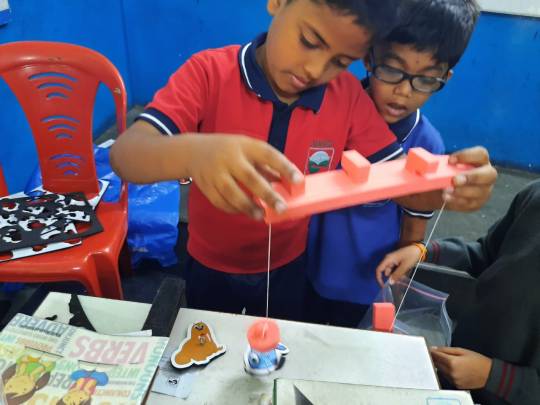
Admissions at Green Valley English School - Konanakunte, Bangalore
Enrol your child in the best CBSE school in South Bangalore. Join Green Valley English School for a quality education.
#best cbse school in south bangalore#best cbse school in bangalore#best cbse school in konanakunte bangalore#schools in bangalore#cbse schools in banashakari bangalore#cbse school bangalore#best cbse school in jpnagara bangalore#cbse school near me#top cbse schools#cbse schools in bannerghatta road
0 notes
Text
#Autism spectrum disorder#Autism symptoms#Autism diagnosis#Autism treatment#Autism awareness#Autism treatment in Bangalore#Autism center in Bangalore#Autism specialist in Bangalore#Autism therapy in Bangalore#Autism support groups in Bangalore#Autism diagnosis in Bangalore#Autism schools in Bangalore#Autism clinics near me#Autism services in Bangalore#Best autism center in Bangalore#Autism workshops in Bangalore#Autism awareness events in Bangalore#Autism therapy centers near me
0 notes
Text
Top developmental disabilities organization
Tamahar, a non-profit organization founded in 2009 by Ms. Vaishali Pai, is dedicated to supporting children facing developmental delays due to brain damage, including conditions like Autism, Cerebral Palsy, Down’s Syndrome, Rare diseases, and Genetic disorders. As one of the best NGOs working for childhood disability in India, our holistic developmental intervention approach encompasses Core intervention, Functional Education, Pre-vocational training, Occupational Therapy, Speech Therapy, Physiotherapy, Music Therapy, Yoga, Arts, Dance, and Sports.
As a top developmental disabilities organization offering a comprehensive range of services tailored to the unique needs of each child from birth onwards, we are recognized as an NGO for the mentally challenged in Bangalore, specializing in providing transformative interventions to enhance the lives of children facing developmental challenges.
In addition to our core services, we extend support to families through mental health services designed to help them cope with stress. We also offer skill development programs for mothers, empowering them with profitable skills. Tamahar is proud to be among the distinguished organizations for developmentally disabled individuals, and we stand out as a trusted autism school in Bangalore near you. We ensure that families get the necessary support to get a proper diagnosis for their children, and to enroll them in Government supported schemes like the Niramaya, Pension, UDID, etc
Discover the transformative impact of our holistic interventions at Tamahar, where we are committed to fostering the growth and development of children with special needs and providing invaluable support to their families.
Our Mission
To enable children with brain damage and their families to live a happy, healthy, and dignified life in an inclusive society through rehabilitation services, capacity building, community engagement, and advocacy.
Our Vision
Prevention & Alleviation of developmental disability in children with brain damage.
Contact Us
+91 96633 25766
15/2, 11th Main Rd, 13th Cross Rd, Malleshwara, Bengaluru, Karnataka 560003.
#Target Keywords#autism schools in bangalore#schools for autism in bangalore#ngo working for disabled in india#association for mentally challenged bangalore#teaching kids with learning disabilities#vocational training for special child#Mental Health services#donate to disabled#volunteer for disabled child care#special schools in bangalore for autism#school for mentally challenged in bangalore#donation for children's education#autism centres in bangalore#partner with ngo#best autism school in bangalore#donate for disabled child#autistic school in bangalore#children ngo in bangalore#school for hyperactive child in bangalore#ngo for physically handicapped in bangalore#ngo for mentally challenged in bangalore#mentally disabled charity#child development organizations#mentally retarded children#special education schools#charitable trust in bangalore#sponsor a child education in india#ngo for mentally challenged near me#autism school in bangalore
0 notes